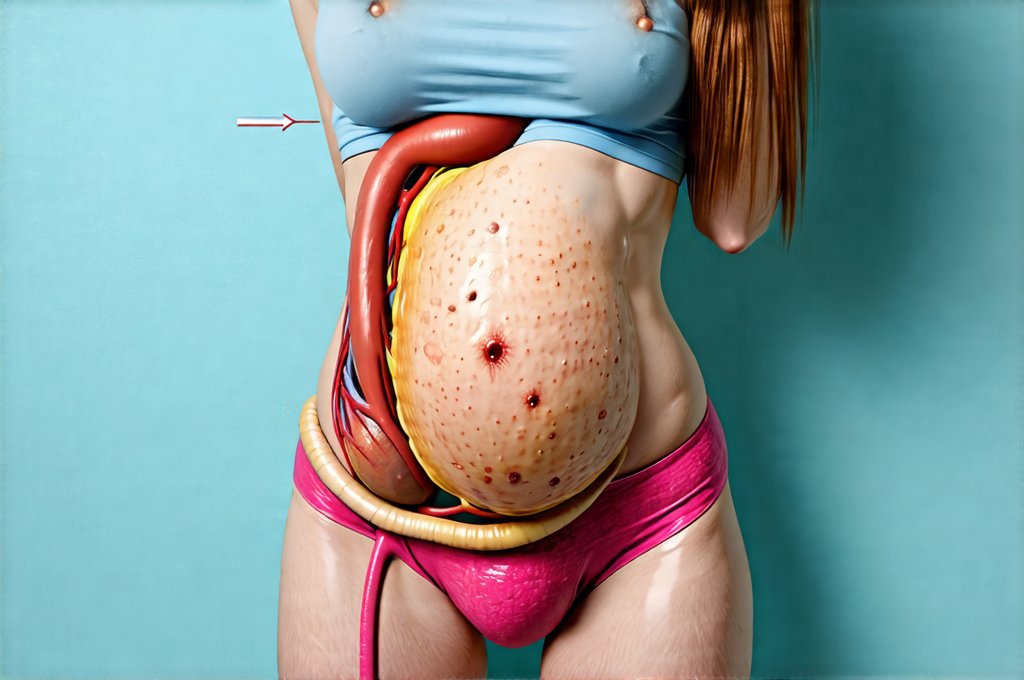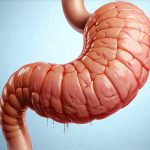Bloating is one of those frustratingly common experiences that many people deal with at some point—or even regularly. It’s often dismissed as simply “having gas” but for some, it can be incredibly uncomfortable, impacting daily life and causing significant distress. While dietary factors, food sensitivities, and underlying medical conditions are frequently blamed, there’s a growing awareness of another potential culprit: the air we swallow every day. This seemingly innocuous act, often overlooked, could be playing a much larger role in bloating than many realize, and understanding why is key to finding effective relief. It’s not necessarily about eliminating foods (though that may still be necessary), but about recognizing how our everyday habits contribute to excessive air accumulation within the digestive system.
The sheer volume of air we swallow might surprise you. We don’t typically think about it, but every sip of a carbonated beverage, bite of food (even solid ones!), and even conversation introduces air into our digestive tract. This isn’t inherently problematic – swallowing some air is perfectly normal. The issue arises when the amount of swallowed air becomes excessive, or when the body struggles to eliminate it efficiently. This leads to distension of the stomach and intestines, resulting in that uncomfortable feeling we recognize as bloating. Identifying whether swallowed air is your primary source of bloating requires a bit of self-awareness and potentially some detective work, but it’s a step towards regaining control over your digestive comfort.
Aerophagia: The Science Behind Swallowed Air
Aerophagia, derived from the Greek words for “air” and “eating,” literally refers to swallowing excessive amounts of air. It’s not a disease in itself but rather a symptom, often stemming from habits or underlying factors that contribute to increased air intake. While everyone swallows some air during eating and drinking, people with aerophagia do so excessively, leading to noticeable bloating, abdominal discomfort, and sometimes even belching—although paradoxically, even the act of trying not to burp can exacerbate the problem. The digestive system generally manages small amounts of swallowed air by either allowing it to pass through as gas or absorbing it into the bloodstream. However, when the volume exceeds this capacity, symptoms begin to surface.
The amount of air we swallow varies greatly depending on individual habits and physiological factors. Eating quickly, talking while eating, chewing gum, smoking, drinking carbonated beverages, and even wearing ill-fitting dentures can all contribute to increased air swallowing. Additionally, certain medical conditions like anxiety or stress can lead to subconscious air gulping as a coping mechanism. It’s important to differentiate aerophagia from other causes of bloating; for example, food intolerances typically involve specific foods triggering gas production within the intestines, whereas aerophagia involves introducing air directly into the digestive tract.
Understanding that swallowed air is often a mechanical issue—a behavioral or habit-related one—is empowering because it suggests solutions focused on modifying these behaviors rather than solely restricting dietary intake. This isn’t to say diet plays no role (it almost always does), but addressing aerophagia can provide significant relief, even before tackling complex food sensitivities. In some cases, unexplained fatigue might also be related to digestive issues like these.
Identifying and Reducing Aerophagia Triggers
Pinpointing the specific triggers for your aerophagia is crucial for effective management. Keep a detailed “air diary” for a week or two, noting when you experience bloating, what you were doing immediately beforehand, what you ate/drank, and any emotional state you were in. This can reveal surprising patterns. For instance, you might discover that chewing gum consistently leads to bloating, or that talking animatedly during meals significantly increases your air intake. Once identified, these triggers can be addressed with conscious effort.
Here are some practical steps you can take to reduce swallowed air:
- Slow Down Your Eating: Rushing through meals forces you to swallow more air along with the food. Take smaller bites and chew thoroughly.
- Minimize Talking During Meals: Engage in mindful eating, focusing on your food rather than conversations.
- Avoid Carbonated Beverages: These are obvious sources of excess gas but sometimes overlooked. Even sparkling water can contribute.
- Limit Chewing Gum & Hard Candies: Prolonged chewing encourages air swallowing.
- Check Your Dentures (if applicable): Ill-fitting dentures can create a vacuum effect, drawing in more air.
- Manage Stress and Anxiety: Practice relaxation techniques like deep breathing exercises or meditation to reduce subconscious air gulping.
It’s also worth considering your posture while eating. Sitting upright supports better digestion and reduces the likelihood of excess air being trapped within the digestive system. These changes require consistent effort, but over time they can significantly decrease the amount of air you swallow and alleviate bloating symptoms. It’s helpful to remember that even the smell of food can sometimes play a role in digestive discomfort.
Addressing Specific Scenarios
Bloating after meals isn’t always straightforward. Sometimes it’s a combination of factors working together. For example, consuming high-FODMAP foods (fermentable oligosaccharides, disaccharides, monosaccharides and polyols) while also swallowing excessive air can create a particularly uncomfortable situation. The FODMAPs are fermented by gut bacteria, producing gas, while the swallowed air adds to the overall distension. This is why it’s important not to immediately assume food intolerance is solely to blame without first evaluating aerophagia as a potential contributing factor.
Another common scenario involves stress-induced bloating. When anxious or stressed, people often unconsciously swallow more air, and this can be compounded by changes in gut motility—the speed at which food moves through the digestive system. Stress can either speed up or slow down digestion, both of which can contribute to bloating. In these cases, addressing the underlying anxiety with techniques like mindfulness, yoga, or therapy can have a significant impact on both air swallowing and overall digestive health.
Finally, be mindful of your breathing patterns throughout the day. Shallow, rapid breathing encourages more air intake than deep, diaphragmatic breathing. Practicing conscious breathing exercises—taking slow, deep breaths from your belly—can promote relaxation and reduce subconscious air gulping. This is a simple yet powerful technique that can make a surprisingly large difference. If acid reflux is also an issue, these breathing techniques may help alleviate symptoms.
The Role of Gut Health & Elimination
Even if you successfully reduce the amount of air you swallow, efficient elimination is crucial. A healthy gut microbiome plays a vital role in this process. While aerophagia introduces excess air, the digestive system should be able to effectively move it along or absorb it. Issues with gut motility—such as constipation or slow transit time—can prevent air from being eliminated properly, leading to build-up and bloating.
Supporting gut health through dietary changes (increasing fiber intake gradually), probiotic supplementation (after consulting a healthcare professional), and regular physical activity can improve digestive function and aid in the elimination of swallowed air. Furthermore, staying adequately hydrated is essential for maintaining healthy bowel movements and preventing constipation. Sometimes gut healing can be a long process with unexpected reactions along the way.
When to Seek Professional Advice
While many cases of bloating due to swallowed air can be managed with lifestyle adjustments, it’s important to consult a healthcare professional if your symptoms are severe, persistent, or accompanied by other concerning signs. These include:
- Severe abdominal pain
- Nausea and vomiting
- Unintentional weight loss
- Changes in bowel habits (diarrhea or constipation)
- Blood in stool
These could indicate an underlying medical condition that requires diagnosis and treatment. A doctor can also rule out other potential causes of bloating, such as irritable bowel syndrome (IBS), celiac disease, or small intestinal bacterial overgrowth (SIBO). They may recommend tests to assess your digestive function and help you develop a personalized management plan. Remember, self-diagnosis and treatment are not recommended; professional guidance is always best for ensuring accurate diagnosis and appropriate care. Consider how your choice of cutlery might influence your eating pace, and thus air swallowing. Raising the head of your bed can also help with related digestive issues.


















